| ▲ 전국 최초로 새만금 3단계 수질개선대책 일환으로 추진하고 있는 우분 연료화 사업의 활성화를 위해 8일 김관영(앞중 오른쪽에서 세 번째) 전북지사가 청사 4층 회의실에서 박범영 국립축산과학원장ㆍ송호석 전북지방환경청장ㆍ권익현(뒷줄 왼쪽에서 세 번째) 부안군수ㆍ정성주(뒷줄 오른쪽에서 세 번째) 김제시장을 비롯 새만금 유역 내 4개 시ㆍ군 단체장 및 SGC에너지(주)ㆍOCI SE(주)ㆍ한화에너지(주) 대표ㆍ전주김제완주축협 김창수 조합장 등과 우분 연료화사업 촉진을 위한 업무협약 체결식을 갖고 기념촬영을 하고 있다. / 사진제공 = 전북도청 © 박동일 기자 |
|
| ▲ 김관영(오른쪽) 전북지사가 업무협약 체결에 앞서 "이제는 가축분뇨를 활용해 세상을 밝게 비추는 시대가 됐다"며 "전국 최초 사례로 선례도 없고, 제도 역시 미흡한 사업이 도전경성의 정신으로 민ㆍ관 상호협력을 통해 새만금수질 비점오염원 저감 및 탄소중립 시대를 선도할 수 있게 됐다"는 인사말을 하고 있다. © 박동일 기자 |
|
전북도가 전국 최초로 새만금 3단계 수질개선대책 일환으로 우분 연료의 생산ㆍ공급ㆍ이용을 위한 기반을 마련했다.
8일 김관영 전북지사는 청사 4층 회의실에서 박범영 국립축산과학원장ㆍ송호석 전북지방환경청장ㆍ권익현 부안군수ㆍ정성주 김제시장을 비롯 새만금 유역 내 4개 시ㆍ군 단체장 및 SGC에너지(주)ㆍOCI SE(주)ㆍ한화에너지(주) 대표ㆍ전주김제완주축협 김창수 조합장 등과 우분 연료화사업 촉진을 위한 업무협약을 체결했다.
이날 전북도ㆍ중앙정부 산하기관ㆍ지자체ㆍ민간기업ㆍ농축협 등의 협약으로 새만금유역 내 4개 시군에서 발생되는 1일 650톤의 우분을 재활용할 경우 1일 162.5톤의 연료 생산이 가능하고 약 244톤의 이산화탄소(CO2)저감 효과가 발생할 것으로 추산됐다.
이는 1ha(10,000㎡) 축구장 8,246개 면적에 30년생 소나무 59,041그루를 식재 또는 자동차 37,108대를 1년간 미운행하는 효과와 같다.
특히 지난 2020년 새만금 3단계 수질개선대책에 반영된 이후 수요처를 찾지 못해 지연된 우분 고체연료화 사업에 새만금산단 열병합발전소 3개소와 공급 협약을 이끌어내 전국 최초로 우분 연료화 사업을 본 궤도에 올려놓는 등 활로를 뚫었다.
김관영 전북지사는 업무협약 체결에 앞서 "이제는 가축분뇨를 활용해 세상을 밝게 비추는 시대가 됐다"며 "전국 최초 사례로 선례도 없고, 제도 역시 미흡한 사업이 도전경성의 정신으로 민ㆍ관 상호협력을 통해 새만금수질 비점오염원 저감 및 탄소중립 시대를 선도할 수 있게 됐다"고 밝혔다.
그러면서 "앞으로도 증앙부처와 시ㆍ군 및 유관기관ㆍ민간과 상생협력을 한층 강화하는 등 ESG 경영에 앞장서는 환경 친화 기업에 대한 정책적ㆍ재정적 지원 확대를 통해 후손들에게 물려 줄 지속가능한 환경보전을 위해 행정력을 모으겠다"고 덧붙였다.
한편, 전북도는 우분 연료 재생에너지를 생산ㆍ이용해 향후 탄소배출권 시장을 선점해 도내 기업들이 더 새로운 성장기반으로 자리매김 할 것으로 기대하고 있다.
또한 일부 지자체의 경우, 수질오염 총량 규제로 개발사업 마저 중단이 우려되는 실정에 우분 연료화 사업을 통해 한우 농가의 영농부담 해소 및 새만금 산업단지에 재생에너지를 공급해 친환경ㆍ책임ㆍ투명(ESG) 경영에 나서는 기업들에게 도움을 줄 수 있을 것으로 전망했다.
전북도는 이에 따라, 정기ㆍ수시 협의체를 지속적으로 운영해 우분 연료의 생산ㆍ공급ㆍ이용 및 확대 기반 마련을 통해 생명경제 추구와 탄소중립에 선도적으로 나선다는 방침이다.
새만금유역인 완주ㆍ김제ㆍ부안ㆍ정읍 등은 전국에서 손꼽힐 정도로 한우 사육두수가 많은 만큼 공공처리시설의 확대가 요구되고 있다.
☞ 아래는 위 기사를 구글 번역이 번역한 영문 기사의 '전문' 입니다.
구글 번역은 이해도를 높이기 위해 노력하고 있으며 영문 번역에 오류가 있음을 전제로 합니다.
【Below is the 'full text' of the English article translated by Google Translate.
Google Translate is working hard to improve understanding, and assumes that there are errors in the English translation.】
Jeonbuk-do 'promotion of cow dung as fuel, public-private business agreement' signed
First in the country… Establishment of foundation for production, supply, use, carbon neutrality, etc. 2 sets with 1 seat
Reporter Park Dong-il
For the first time in the country, Jeonbuk-do prepared the foundation for the production, supply and use of cow manure fuel as part of the 3rd stage water quality improvement measures in Saemangeum.
On the 8th, Jeonbuk Governor Kim Kwan-young held a meeting at the meeting room on the 4th floor of the government building, with Park Bum-yeong, director of the National Institute of Livestock Science, Song Ho-seok, director of the Jeonbuk Regional Environment Office, Kwon Ik-hyeon, Buan-gun governor, and Jeong Seong-ju, Kimje mayor, as well as the heads of four cities and counties in the Saemangeum basin and SGC Energy Co., Ltd. and OCI SE. )ㆍHanwha Energy Co., Ltd. CEO Jeonju Kim Je-wanju Livestock Cooperative Kim Chang-soo, etc. signed a business agreement to promote the cattle waste fuel business.
On this day, if 650 tons of cow manure generated in 4 cities and counties in the Saemangeum basin are recycled according to agreements between Jeonbuk-do, central government agencies, local governments, private companies, and agricultural cooperatives, 162.5 tons of fuel can be produced per day, which is about 244 tons. It is estimated that carbon dioxide(CO2) reduction effect will occur.
This is equivalent to planting 59,041 30-year-old pine trees in an area of 8,246 soccer fields of 1ha(10,000㎡) or stopping 37,108 cars from operating for one year.
In particular, since it was reflected in the 3rd phase of Saemangeum water quality improvement measures in 2020, the delayed cow poop solid fuel project was unable to find a demand source, and it led to a supply agreement with three Saemangeum industrial complex cogeneration plants and put the cow poop fuel project on track for the first time in the country. .
Prior to the signing of the MOU, Jeonbuk Governor Kim Kwan-young said, “Now is the time to use livestock manure to brighten the world.” Through this, we will be able to lead the era of carbon neutrality and reduction of non-point pollutants for Saemangeum water quality.”
“In order to preserve a sustainable environment that will be handed down to our descendants, we will continue to expand policy and financial support for eco-friendly companies that take the lead in ESG management, such as further strengthening win-win cooperation with central ministries, cities, counties, related institutions, and the private sector. I will gather administrative power," he added.
On the other hand, Jeonbuk-do expects that companies in the province will establish themselves as a new growth base by preoccupying the carbon credit market in the future by producing and using renewable energy for cow dust fuel.
In addition, in the case of some local governments, there is a concern that even development projects will be stopped due to regulations on the total amount of water pollution. Through the cow dung fuel project, we relieve the farming burden of Korean cattle farmers and supply renewable energy to the Saemangeum industrial complex for eco-friendly, responsible, and transparent(ESG) management. It is expected that it will be able to help companies that come out.
Accordingly, Jeonbuk-do plans to continue to operate regular and occasional consultative bodies to take the lead in pursuing the life economy and carbon neutrality by preparing the basis for the production, supply, use and expansion of cow manure fuel.
The Saemangeum basin, such as Wanju, Gimje, Buan, and Jeongeup, has a large number of Korean cattle breeding, so there is a need for expansion of public treatment facilities.
















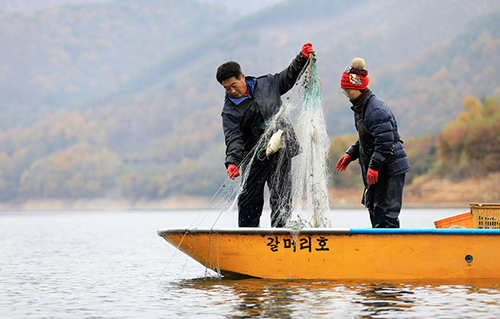
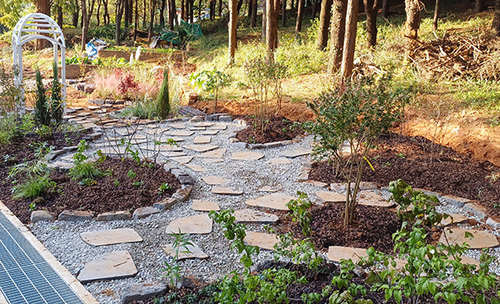
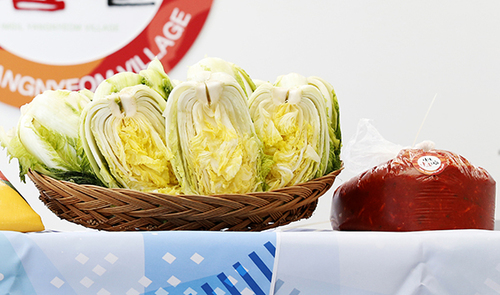
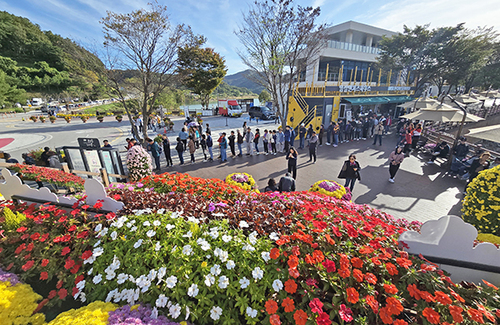
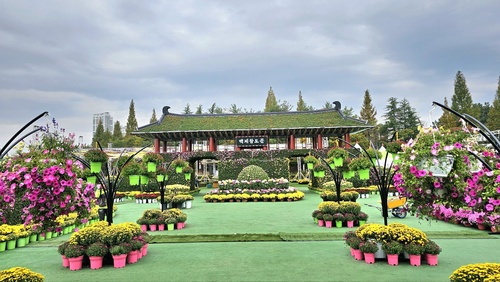
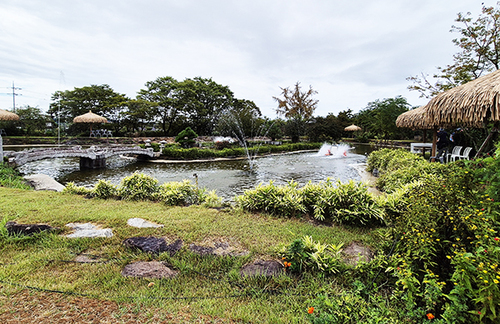
 많이 본 뉴스
많이 본 뉴스











